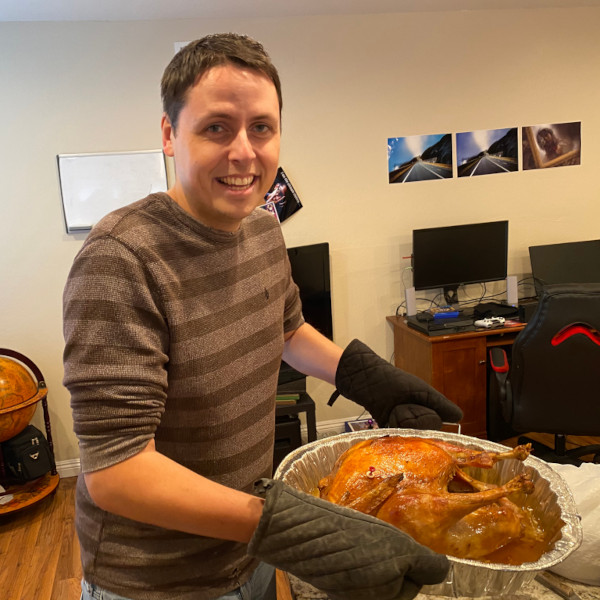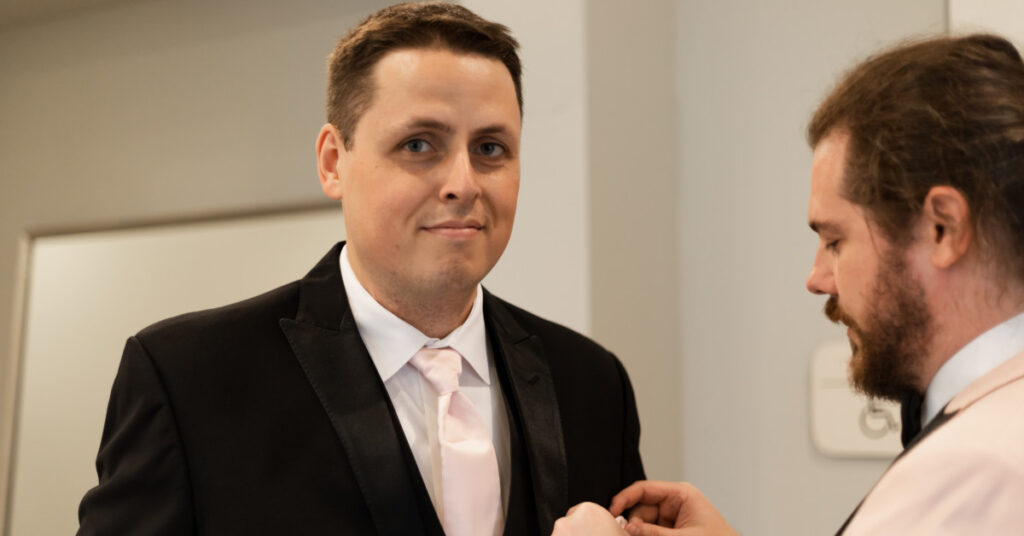My best friend passed away two weeks ago.
I’ve gone through a lot of feelings and emotions over the past two weeks. A lot of things that I’ve done and said conflict with my own beliefs, or at least seem unreasonable to me. I’ve texted him a number of times since he passed, knowing full well that no one will ever read those texts. I helped his parents clean out his cabin, and after three days, as I left the cabin with the last load of his personal belongings I was able to take, I turned to the cabin that he lived in for nine years, an inanimate object, and I spoke to it out loud, “Thank you, for making David happy.” I’ve kept a number of things that I personally have no need for, but that I feel he would be upset if he knew they were thrown away. He’s gone, not able to be upset anymore, but I still chose to keep these things. Even though he can’t be upset or in pain, I felt like I was hurting him as I took his belongings away. They’re his things, and I’m taking them away. I can’t explain why I felt this way. Logically, these feelings don’t make sense. But, I’m just an animal, still subject to the same feelings and emotions as everyone else. When someone close dies, I still perform rituals and ceremonies, despite not believing in the supernatural reasoning for them.
I was raised Christian and believed in Heaven, but I left the church and slowly gave up all of my beliefs in an afterlife in my teen years. Since then, it’s been easy to answer when someone asks, “Where do you think we go when we die?” Nowhere. We simply cease to exist. At least that’s my best guess, based on all of the evidence available. Of course, no one can say for sure. But after losing someone so incredibly important to me, knowing that I’ll never see him again, I don’t feel like that’s a good answer anymore. Don’t get me wrong, it’s still what I believe, but I don’t really feel any comfort with that answer like I used to.
Feeling especially distraught, I asked my Aunt Mary, who is a minister, where she thought David was. She explained that in the scripture she was reading that day, it states that when someone has faith, that faith extends to their whole household. David’s parents are both Christian, but before I told her this, Mary told me that she had prayed that God would extend her household to include David. She explained that she is certain that David is in Heaven. David’s parents found comfort in this, and they too believe he is certainly in Heaven. I found some comfort in this, even though I don’t share their faith or their beliefs. Just knowing that she and David’s parents are certain that David is happy and at peace made me feel a little better.
As an atheist, I don’t have that same belief to give me comfort. I believe that everything that made David my best friend and the wonderful man he was disappeared from his body when he died, now only present in the past and in our memories. But I have found something that does bring me much comfort, and I’d like to share it with you. Maybe you are also an atheist who has lost a loved one, and this can help you during your grief.
When death is instant, the brain doesn’t have a chance to understand or experience its own death. Maybe that can be comforting if you’ve lost a loved one whose death was instant. Knowing that they didn’t suffer is comforting on its own. David’s death was not instant, and I believe that gave him the opportunity to experience Heaven. I just spent four paragraphs explaining that I don’t believe in Heaven, but that is a supernatural Heaven. The kind that survives your death. When the brain is shutting down in the process of death, what is referred to as a “Near Death Experience” can occur. This process is usually described as an overwhelming sense of peace, warmth, love. Some people relive major life events or see relatives that have passed. For David, I imagine he experienced a sense of peace, calm, and belonging. He was the kind of person who had difficulty relaxing and being at peace. I believe this process for him gave him that peace that he sought. What other word can you use for an experience like that but Heaven?
If Heaven is not a place, but a process that the brain experiences during its own death, then surely David experienced it. People who have come back from what he slipped through have described exactly the same experiences. If we can describe the process of meditation as “going to a happy place”, then we can describe this process that occurs during death as “going to Heaven”.
My best friend passed away two weeks ago, and I believe he went to Heaven.



“When death is instant, the brain doesn’t have a chance to understand or experience its own death. Maybe that can be comforting if you’ve lost a loved one whose death was instant. Knowing that they didn’t suffer is comforting on its own. David’s death was not instant, and I believe that gave him the opportunity to experience Heaven.”
Precisely why I cling to my idea of peaceful disembodied consciousness. Those who never got the ability the experience an NDE, or such like animals that are used in experiments wherein receptors of their brains that produce feelings of joy and love are blocked for their entire lives, animals that are abused until they die, that never get to experience these feelings, I find deserve something good in some form of an afterlife.
So if someone never gets to feel these feelings but lives a life of suffering, the prospect of “they are no longer suffering” as a way of explaining lack of consciousness in regards to living a tortured life…just doesn’t do it for me for some reason. It offers a pang of comfort in the beginning, but after a while I come back to it and think “what good does it serve if there’s absolutely nothing to make up for the lifetime of suffering? Nothing to contrast the suffering except never experiencing suffering, but not even being aware they are no longer suffering? What’s the point? Where’s the comfort in that?”
I hate it, but it’s my reality.
Dear GOD/GODS and/or anyone else who can HELP ME (e.g. TIME TRAVELERS or MEMBERS OF SUPER-INTELLIGENT ALIEN CIVILIZATIONS):
The next time I wake up, please change my physical form to that of FINN MCMILLAN formerly of SOUTH NEW BRIGHTON at 8 YEARS OLD and keep it that way FOREVER.
I am so sick of this chubby, balding Asian man body!
Thank you!
– CHAUL JHIN KIM (a.k.a. A DESPERATE SOUL)
Hey people!!!!!
Good mood and good luck to everyone!!!!!